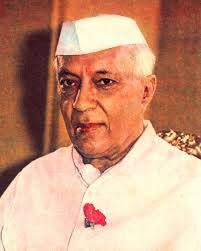Jawaharlal Nehru short note
15 August 1947 – 27 May 1964
Monarch George VI
(until 26 January 1950)
President Rajendra Prasad
Sarvepalli Radhakrishnan
Governor General The Earl Mountbatten of Burma
Chakravarti Rajagopalachari
(until 26 January 1950)
Deputy Vallabhbhai Patel
Preceded by Position established
Succeeded by Gulzarilal Nanda (Acting)
Minister of Defence
In office
31 October 1962 – 14 November 1962
Preceded by V. K. Krishna Menon
Succeeded by Yashwantrao Chavan
In office
30 January 1957 – 17 April 1957
Preceded by Kailash Nath Katju
Succeeded by V. K. Krishna Menon
In office
10 February 1953 – 10 January 1955
Preceded by N. Gopalaswami Ayyangar
Succeeded by Kailash Nath Katju
Minister of Finance
In office
13 February 1958 – 13 March 1958
Preceded by Tiruvellore Thattai Krishnamachariar
Succeeded by Morarji Desai
In office
24 July 1956 – 30 August 1956
Preceded by Chintaman Dwarakanath Deshmukh
Succeeded by Tiruvellore Thattai Krishnamachariar
Minister of External Affairs
In office
15 August 1947 – 27 May 1964
Preceded by Position established
Succeeded by Gulzarilal Nanda
Personal details
Born 14 November 1889
Allahabad, North-Western Provinces, British India
(now in Uttar Pradesh, India)
Died 27 May 1964 (aged 74)
New Delhi, India
Political party Indian National Congress
Spouse(s) Kamala Kaul
Relations See Nehru–Gandhi family
Children Indira Gandhi
Parents Motilal Nehru
Swaruprani Thussu
Alma mater Trinity College, Cambridge
Inns of Court
Profession Barrister
Writer
Politician
Awards Bharat Ratna Ribbon.svg Bharat Ratna (1955)
Signature
Jawaharlal Nehru (/ˈneɪruː, ˈnɛruː/;[1] Hindustani: [ˈdʒəʋaːɦərˈlaːl ˈneːɦru]; 14 November 1889 – 27 May 1964) was the first Prime Minister of India and a central figure in Indian politics before and after independence. He emerged as the paramount leader of the Indian independence movement under the tutelage of Mahatma Gandhi and ruled India from its establishment as an independent nation in 1947 until his death in 1964. He is considered to be the architect of the modern Indian nation-state: a sovereign, socialist, secular, and democratic republic. He was also known as Pandit Nehru due to his roots with the Kashmiri Pandit community while many Indian children knew him as Chacha Nehru (Hindi, lit., "Uncle Nehru").





Comments
Post a Comment